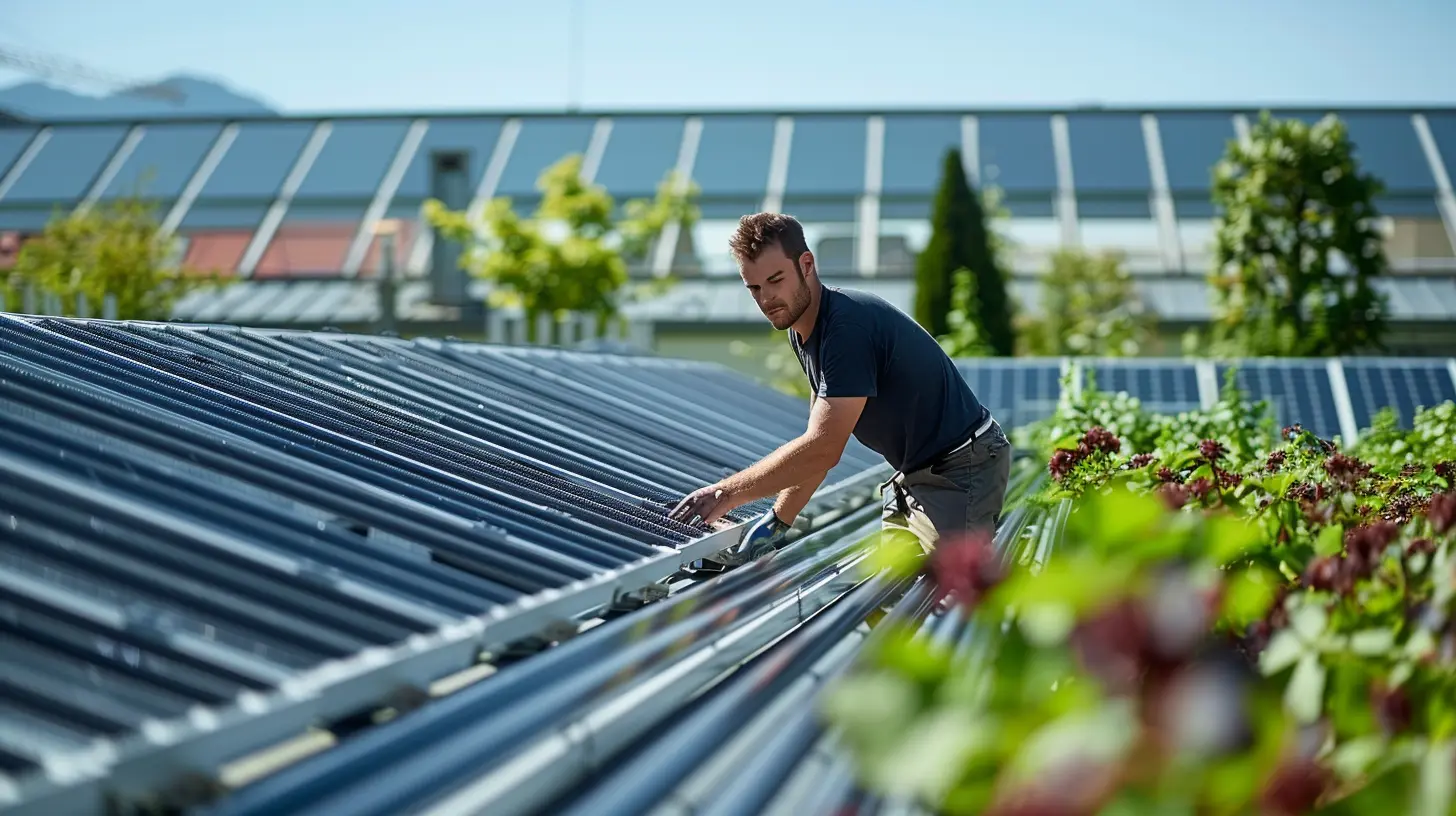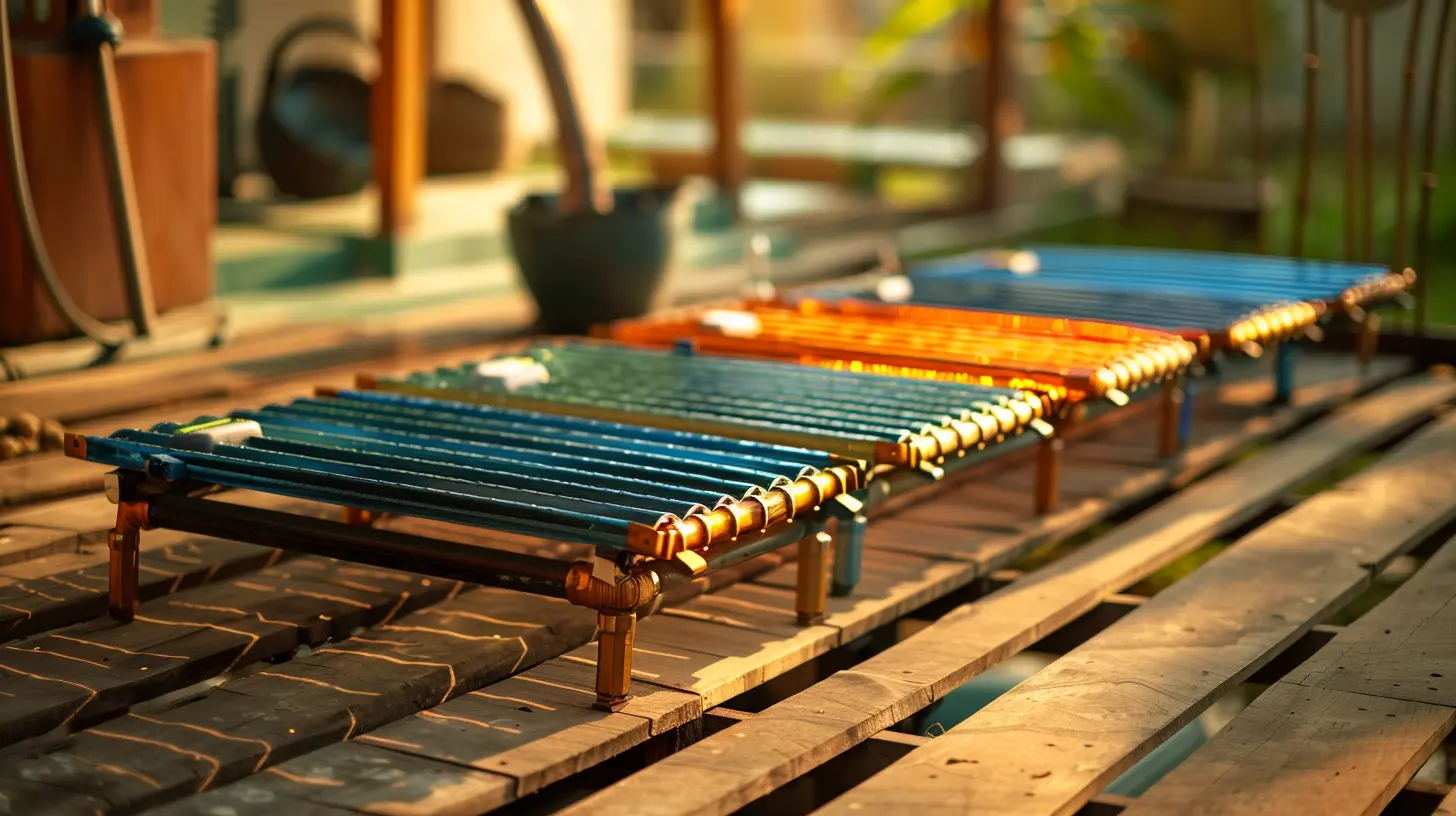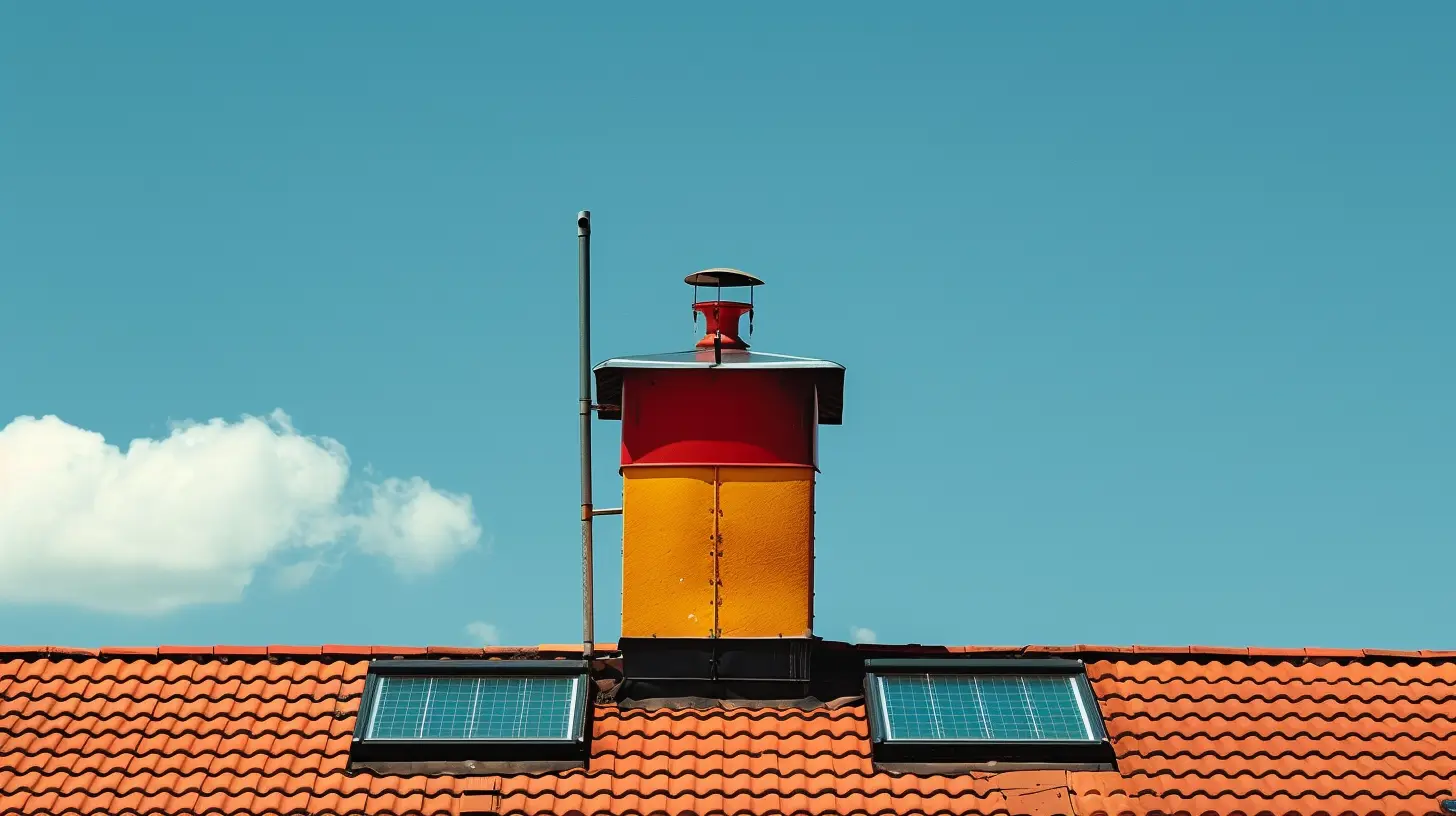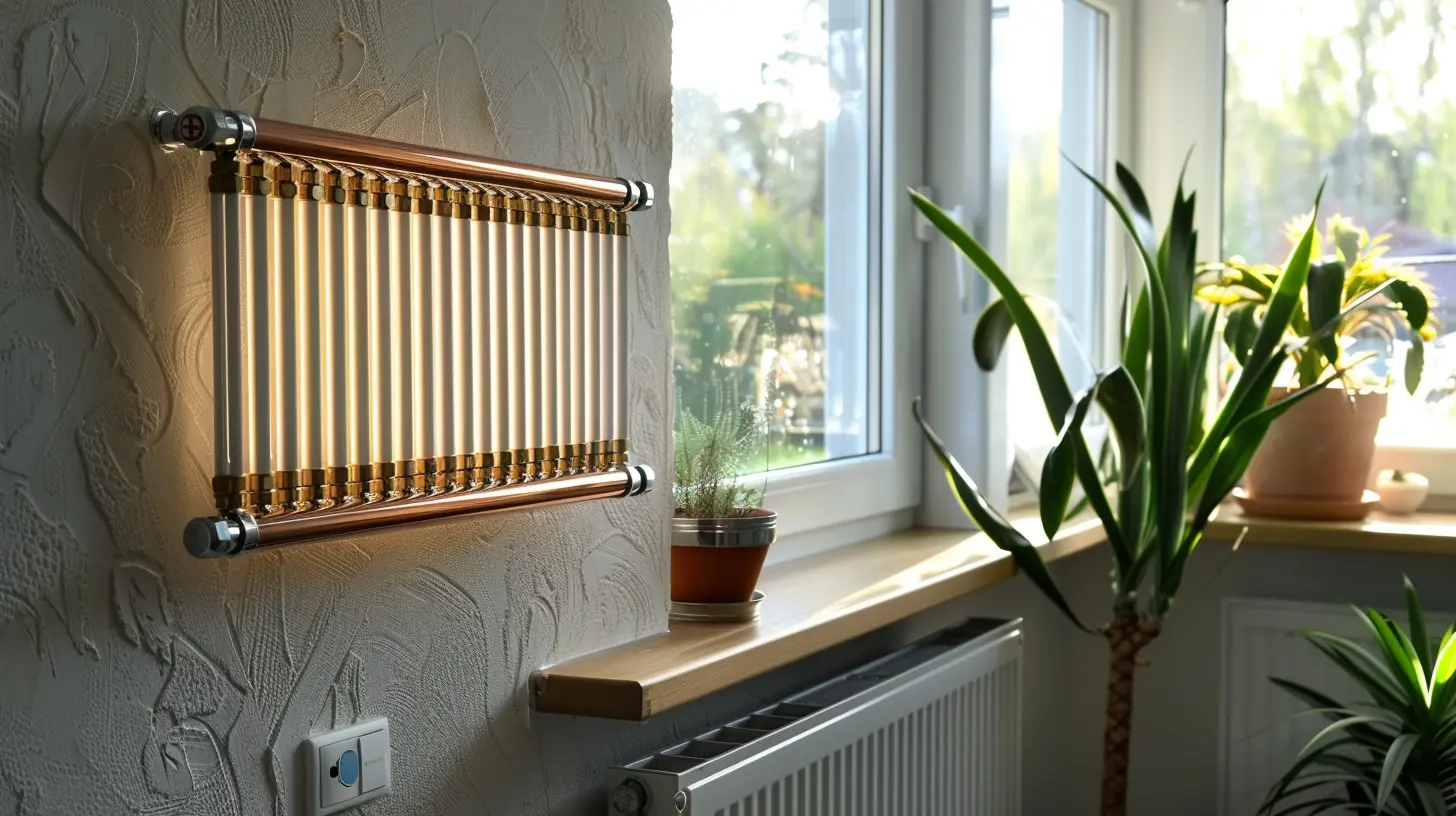Solar Water Heaters: An Energy-Saving Investment for Your Home
13 September 2025
Let’s be real for a moment—heating water in your home isn’t exactly a thrilling subject. But what if I told you that your hot morning shower could actually help save the planet and reduce your utility bill? Yep, that’s right. Solar water heaters can do just that. They're the unsung heroes of energy efficiency, quietly working behind the scenes to warm your water while cooling down your expenses.
So, if you're tired of paying through the nose for hot water and you’re ready to make an eco-friendly change (without completely overhauling your life), keep reading. We’ve got a lot to unpack, and it’s going to be surprisingly fun. Pinky swear.
☀️ What Exactly Is a Solar Water Heater?
Alright, before we start throwing around techy terms and energy efficiency stats, let’s break down what a solar water heater actually is. At its core, a solar water heater is a system that uses the sun’s magical rays (okay, scientific radiation) to heat water for your home.It doesn’t involve rocket science—or plug-in solar panels slapped randomly on your roof. Instead, it uses specially designed solar collectors to soak up sunlight, converting it into thermal energy. This heat is then transferred to the water used in your home—for showers, dishes, laundry, and more.
Think of it like a giant sun-powered thermos for your house. Pretty awesome, huh?
🔧 How Do Solar Water Heaters Work? (Without Making Your Brain Hurt)
Imagine laying out in the sun with a black T-shirt on. You feel warmer, right? That’s basically how solar water heaters function—but with less sweat and sunburn.Here’s a watered-down (pun intended) version of how they work:
1. Solar Collectors: These are the main heat-grabbing components. They’re typically installed on your roof where they can soak up the most sunlight.
2. Circulation System: Depending on the type of heater (more on that soon), water or a heat-transfer fluid flows through these collectors.
3. Storage Tank: Once heated, the water is stored for when you’re ready for a hot shower or a relaxing soak.
4. Backup Heater: On cloudy days or during winter, a backup heater kicks in to make sure you’re not suddenly ice-bathing like a contestant on a survival show.
It’s a clever mix of natural forces and simple engineering—like nature and science having a thoughtful little collab.
🎯 Types of Solar Water Heating Systems (Yes, You Have Options)
Before you dash out and start drilling into your roof, it's worth noting that not all solar water heaters are created equal. There are two main flavors:1. Active Systems (They Like to Move It, Move It)
These systems come with pumps that circulate water or antifreeze solutions through the collectors. They’re efficient and work well in colder climates.- Direct Circulation Systems: Water is pumped directly through the collectors and into your home.
- Indirect Circulation Systems: A heat-transfer fluid is circulated instead of water to prevent freezing. The heat is then transferred to your water.
2. Passive Systems (Chill Vibes Only)
These don’t use pumps. They rely on gravity and natural convection. They tend to be less expensive and require less maintenance, but they might not be ideal in colder regions.- Integral Collector Storage (ICS) Systems: These combine storage and collection in one place.
- Thermosyphon Systems: Water flows through the system as it heats up naturally—simple and effective.
Think of it like choosing between a self-driving car and a hybrid bike. One’s got more bells and whistles, but both can get you where you need to go.
💸 How Much Do They Cost? (And Are They Worth It?)
Okay, let’s talk dollars and cents—because let’s face it, saving the planet is great, but saving some green while doing it? Even better.Upfront Costs:
- On average, a solar water heating system can set you back anywhere from $3,000 to $7,000 (including installation).- Passive systems are cheaper; active systems cost more due to extra components and complexity.
Savings Breakdown:
- You can save up to 50–80% on your water heating bills.- In sunny climates, the payback period can be as short as 3 to 6 years.
- With tax incentives and rebates available in many areas, you might end up paying a lot less out of pocket.
Let’s put it like this: It’s like investing in a fancy espresso machine. Yeah, it's pricey up front, but after a year of skipping the coffee shop, it pays for itself—and then some.
🌍 Why They’re Kind of a Big Deal (AKA Benefits Galore)
You came here to learn why these things are worth it, and the benefits are seriously stacked. Here’s what makes solar water heaters a hot (pun completely intended) investment:1. Lower Utility Bills
Heating water can suck up a major chunk of your energy bill. Solar heaters take a big bite out of that cost every month.2. Environmentally Friendly
They reduce your carbon footprint like a boss. Fewer fossil fuels, fewer emissions. Mother Earth will definitely send you a thank-you card.3. Low Maintenance
Once installed, they need very little upkeep. Some systems can last 20+ years with minimal fuss. That’s basically forever in appliance years.4. Increases Home Value
Energy-efficient homes are attractive to buyers. It's like adding curb appeal—but for your energy bill.5. Energy Independence
With solar, you’re less reliant on the whims of Big Energy. Grid spike? Meh. You’ve got the sun on your side.🤔 Is Your Home a Good Fit?
Not all homes are instant candidates for solar water heating. But don’t worry—you don’t need to live in the Sahara to make this work.Here’s what helps:
- Plenty of Sunlight: Obvious one, yes, but even colder regions can benefit if they get several hours of daily sun.
- Roof Space: You’ll need a few square meters of unobstructed roof space—preferably facing south (or north, if you're in the southern hemisphere).
- Hot Water Demand: The more hot water you use, the more you'll benefit from solar.
Pro tip: A quick site assessment by a solar contractor can give you all the info you need. Or if you're a DIY enthusiast, grab a ladder and your compass, and have at it (safely... seriously).
🧽 What About Maintenance? Will It Be a Pain?
Solar water heaters are surprisingly low-maintenance—a bit like that one friend who brings snacks to every party and never causes drama.Here's what you’re looking at:
- Visual inspections every 6-12 months to check for leaks, cracks, or corrosion.
- Professional servicing every 3-5 years to flush the system, check the antifreeze if you’ve got it, and inspect the circulation pump.
- Occasional cleaning of the solar collectors if you’re in a dusty area. Rain usually takes care of it, but if you're in the mood for a rooftop Bond moment, grab a hose.
Most manufacturers offer 5–10-year warranties, which gives you peace of mind (and leverage if things go sideways).
🔌 What About Cloudy Days or Nighttime Use?
Good question! The sun’s not always around—unless you live in a fairy tale. That’s where the backup system swoops in to save the day.Most solar water heaters come with electric or gas backups to fill in the gaps. So even if the weather outside is frightful, your shower can still be delightful.
You’ll always have hot water, sun or no sun. It’s kind of like having a solar superhero with a trusty sidekick.
🧠 Myths Busted (Time to Set the Record Straight)
Let’s bust a few popular myths about solar water heaters:- ❌ “They don’t work in cold weather.”
✅ Cold doesn’t matter as much as sunlight. Many systems are designed for chilly climates.
- ❌ “They’re only for rich people.”
✅ With tax credits, rebates, and falling costs, they’re actually becoming accessible to more homeowners than ever.
- ❌ “They’ll make my roof look ugly.”
✅ Modern systems are sleek and low-profile. Think high-tech, not Frankenstein.
🧮 The Bottom Line: Should You Get One?
Let’s wrap it all up. If you:- Want lower utility bills
- Care about the environment
- Enjoy long showers without guilt
- Have roof space and sunshine
- Are into long-term wins instead of short-term splurges...
Then yes, solar water heaters are absolutely worth it. They’re the kind of home improvement that pays you back while making your lifestyle a little greener—and a lot warmer.
Plus, you get the joy of telling your guests, “That hot water? Oh yeah, powered by sunshine.” Total flex.
🌟 Final Thoughts
Solar water heaters might not be the flashiest gadgets on the block, but they’re reliable, efficient, and quietly revolutionizing home energy. It’s like putting money in a savings account—except every time you take a shower, you’re practically cashing in.So go ahead, embrace the sunshine. Your wallet (and the planet) will thank you.
all images in this post were generated using AI tools
Category:
Renewable EnergyAuthor:

Michael Robinson
Discussion
rate this article
1 comments
Hawk Murphy
Exciting potential! How do solar water heaters compare to traditional systems in efficiency and cost?
September 16, 2025 at 3:09 AM

Michael Robinson
Solar water heaters typically offer higher efficiency, especially in sunny climates, as they harness solar energy directly. While the initial cost may be higher than traditional systems, they can lead to significant long-term savings on energy bills.


